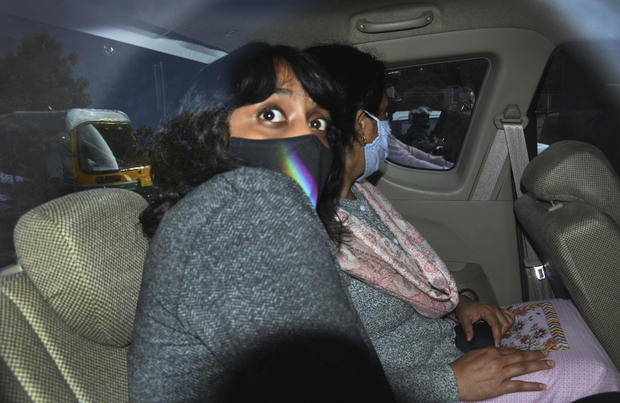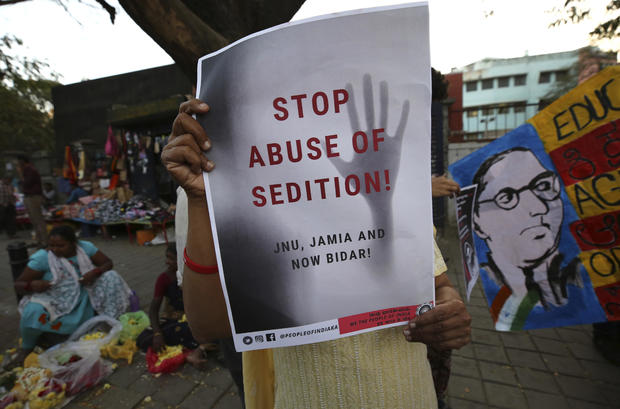Supreme Court order brings hope for thousands jailed on controversial colonial-era sedition law in India
New Delhi — India's Supreme Court has put on hold a controversial British colonial-era law that critics say has been widely misused against government critics for decades. The sedition law allows authorities to arrest people without a warrant if they're accused of a broad range of anti-government activities.
The top court on Wednesday ordered the government to put all sedition trials on hold and stop registering new cases under the law until the federal government completes a review of the legislation. The government has said it will carry out that review, after earlier defending the old law.
More than 13,000 people have been jailed in India under the law, according to lawyer Kapil Sibal, who represents activists challenging the legislation in the courts. People convicted under the law — section 124 A in the Indian Penal Code — can now formally seek bail under the Supreme Court's directive.
The law itself explicitly bans any possibility of bail for those arrested under it, so the top court's order will be a welcome chance at reprieve for the hundreds of politicians, activists, journalists, students, artists, academics and others held under it.
"The court is to balance civil liberty and sovereignty of the state. This is a difficult exercise," said N. V. Ramanna, Chief Justice of India, as he ordered the stay on the law. He said it was "clear" the government had accepted that the sedition law is "not in tune with the current situation and it was intended for the time when the country was under colonial law."
The sedition law was introduced by India's British colonial government in 1870. The British rulers used it to silence — among many others — Mahatma Gandhi, the iconic leader of India's non-violent fight for freedom. He was arrested in 1922 on charges of sedition for taking part in an anti-government protest and sentenced to six years in prison, though he was released two years later on medical grounds.
The law states that: "Whoever, by words, either spoken or written, or by signs, or by visible representation, or otherwise, brings or attempts to bring into hatred or contempt, or excites or attempts to excite disaffection towards the Government established by law in India, shall be punished with imprisonment for life, to which fine may be added, or with imprisonment which may extend to three years, to which fine may be added, or with fine."
According to data compiled by website "Article14", 405 Indians were charged with sedition between 2010 and 2021 - more than 90% of them during the tenure of current Prime Minister Narendra Modi, who took office in 2014.
Of those 405 cases, Article14 says a quarter involve people prosecuted for posting "anti-national" content on social media.
The federal government has said it will "re-examine" the colonial era law and submit its views to the top court. The Supreme Court is set to take up the case again in July.







